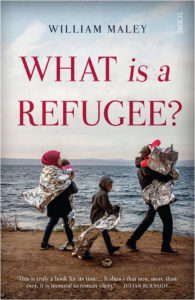
What is a Refugee?
William Maley
Hurst (2016)
Rs2,420
With the arrival in Europe of over a million refugees and asylum seekers in 2015, a sense of panic began to spread within the continent and beyond. What is a Refugee? puts these developments into historical context, injecting much-needed objectivity and nuance into contemporary debates over what is to be done. Refugees have been with us for a long time — although only after the Great War did refugee movements commence on a large scale — and are ultimately symptoms of the failure of the system of states to protect all who live within it. Providing a terse user’s guide to the complex legal status of refugees, Maley argues that states are now reaping the consequences of years of attempts to block access to asylum through safe and ‘legal’ means. He shows why many mooted ‘solutions’ to the ‘problem’ of refugees — from military intervention to the warehousing of refugees in camps — are counterproductive, creating environments ripe for the growth of extremism among people who have been denied all hope. In a globalised world, he concludes, wealthy states have the resources to protect refugees.And, as his historical account shows, courageous individuals have treated refugees in the past with striking humanity. States today could do worse than emulate them.
William Maley is Professor of Diplomacy in the Asia-Pacific College of Diplomacy at the Australian National University. He has been a Visiting Research Fellow in the Refugee Studies Programme at the University of Oxford, and is a Fellow of the Academy of the Social Sciences in Australia.
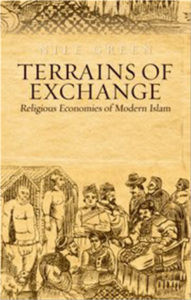
Terrains of Exchange: Religious Economies of Global Islam
Nile Green
C Hurst & Co Publishers Ltd (2015)
Rs4,657
‘Terrains of Exchange’ offers a bold new paradigm for understanding the expansion of Islam in the modern world. Through the model of religious economy, it traces the competition between Muslim, Christian and Hindu religious entrepreneurs that transformed Islam into a proselytising global brand. Drawing Indian, Arab, Iranian and Tatar Muslims together with Scottish missionaries and African-American converts, Nile Green brings to life the local sites of globalisation where Islam was repeatedly reinvented.
Nile Green is a historian.
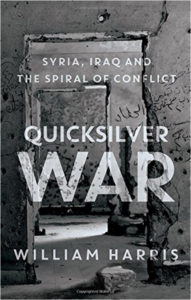
Quicksilver War: Syria, Iraq and the Spiral of Conflict
William Harris
C Hurst & Co Publishers Ltd (2018)
Rs3,726
Quicksilver War is a panoramic political history of the wars that coursed through Syria and Iraq in the wake of the ‘Arab Spring’ and eventually merged to become a regional catastrophe: a kaleidoscopic and constantly shifting conflict involving many different parties and phases. William Harris distils the highly complex dynamics behind the conflict, starting with the brutalizing Baathist regimes in Damascus and Baghdad. He charts the malignant consequences of incompetent US occupation of Iraq and Bashar al-Assad’s self-righteous mismanagement of Syria, through the implosion of Syria, and the emergence of eastern and western theatres of war focused respectively on future control of Syria and the challenge of ISIS. Beyond the immediate arena of conflict, geopolitical riptides have also been set in motion, including Turkey’s embroilment in the war and the shifting circumstances of the Kurds. This sweeping history addresses urgent questions for our time. Will the world rubber-stamp and bankroll the Russian-led ‘solution’ in Syria, backed by Turkey and Iran? Is the ‘Quicksilver War’ about to reach an explosive finale? Or will ongoing political maneuvering mutate into years of further violence?
William Harris is Professor of Politics at the University of Otago, New Zealand. He works on the politics and history of the Levant states. His most recent books are Lebanon: A History, 600-2011 and the fourth, completely revised edition of The Levant: A Fractured Mosaic.
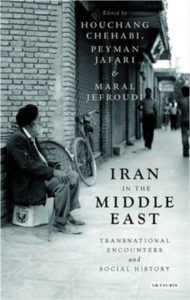
Iran in the Middle East: Transnational Encounters and Social History
Eds Houchang Chehabi
IB Tauris (2015)
Rs12,855
Iran’s interaction with its neighbours is a topic of wide interest. But while many historical studies of the country concentrate purely on political events and high-profile actors, this book takes the opposite approach: writing history from below, it instead focuses on the role of everyday lives.
Modern Iranian historiography has been dominated by ideas of nationalism, modernization, religion, autocracy, revolution and war. Iran in the Middle East adds new dimensions to the study of four crucial areas of Iranian history: the events and impact of the Constitutional Revolution, Iran’s transnational connections, the social history of Iran and developments in historiography. Featuring eminent scholars such as Ali Ansari, Janet Afary and Erik-Jan Zürcher, this book makes a significant contribution to the understanding of Iran in a transnational context by exploring the key social actors in the constitutional revolution, trade and the role of women.
The authors emphasize the role of societal transformations, social movements, class, gender and ethnic identities, analyzing both national and individual identity. What emerges is a concise and unique look at Iranian social history, from both within the country’s internal relationships with its social groups, and from its external relations with neighbouring countries. It will prove essential reading to scholars and students of Iran and the wider Middle East region
‘This is a magnificent collection of articles on modern Iranian social and political history. Original and timely, it will be of great value to both the expert and the more general reader,’ writes Stephanie Cronin of the University of Oxford in his review.
Houchang Chehabi has taught at Harvard, Oxford and UCLA.
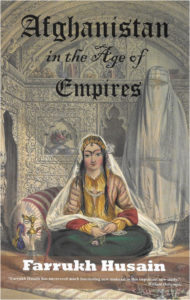
Afghanistan in the age of Empires: the Great Game for South and Central Asia
Farrukh Husain
Silk Road Books and Photos (2017)
Rs1,995
This book has a primary focus on the struggle for power of Shah Shuja Ul Mulk paving the way for the first Afghan war. The book charts the rise and fall of Durrani rule in Afghanistan and what is now Pakistan. The Durrani empire had been the second largest Eighteenth Century Muslim empire after the Ottomans. The immediate beneficiary of Durrani decline were the Sikhs who grabbed most of the Punjab, the Peshawar valley and Kashmir.
Over the course of the latter half of the nineteenth century Afghanistan had shrunk to its present modern boundaries. What is missing in many narratives is the Afghan perspective on events and so I cite the statements of Afghan participants as detailed by contemporary witnesses.
The role Afghan Women played in combat as well as in poetry to inspire their men to fight is illustrated. For example, though the battle of Maiwand during the Second Anglo-Afghan war is well known for the charge by Malalai on horseback, no contemporary author has written about the first such charge by a burka clad woman against the British, during May 1842, to avenge her husband’s death at the head of thousands of Afghans, which took place not far from Maiwand in Zemindawar, Helmand. Afghan women have been recorded as fighting in battles from the fall of Saddozai ruled city of Multan, Punjab fighting the Sikhs (Chapter 1) and at the fall of Ghazni in 1839 (Chapter 5).
The character of Sir William Hay Macnaghten is crucial to an understanding of the war. Macnaghten was a judge and I examine Macnaghten’s behaviour in the light of his former judicial role. A Judge should be someone who can be held to his word. This was not the case with Macnaghten. After the victorious entry into Kandahar, Macnaghten obtained a new treaty with Shuja allowing for a British resident at Kabul and 50 British officers to train a new army. Additionally at Ghazni in 1839, Nawab Jubbar Khan had offered a viable power sharing compromise with Dost Mahomed Khan as Shuja’s Wazir, but Macnaghten rejected this. Macnaghten should have known about the merits of an amicable solution rather than pursuing the thorny path of adversarial conflict with unknown outcomes. Furthermore Macnagthen failed to adhere to the tripartite agreement terms that precluded contact between the British-Indian forces and Afghan civilians without Shuja’s consent. When Shuja objected to fraternisation between Afghan women and the British soldiers, Shuja was foolishly ignored. Thereafter when the Kabul uprising occurred Macnagthen failed to adhere to his promises made to the Afghan resistance leaders and instead tried to make a more beneficial deal with Mohammed Akbar Khan. It was these decisions taken by Macnaghten that paved the way for war and disaster for British forces.

